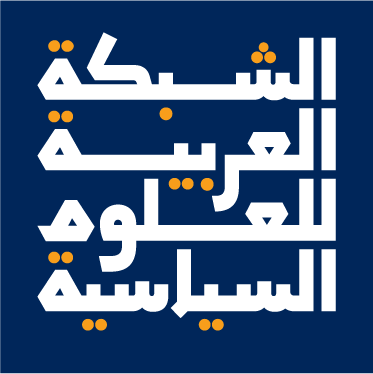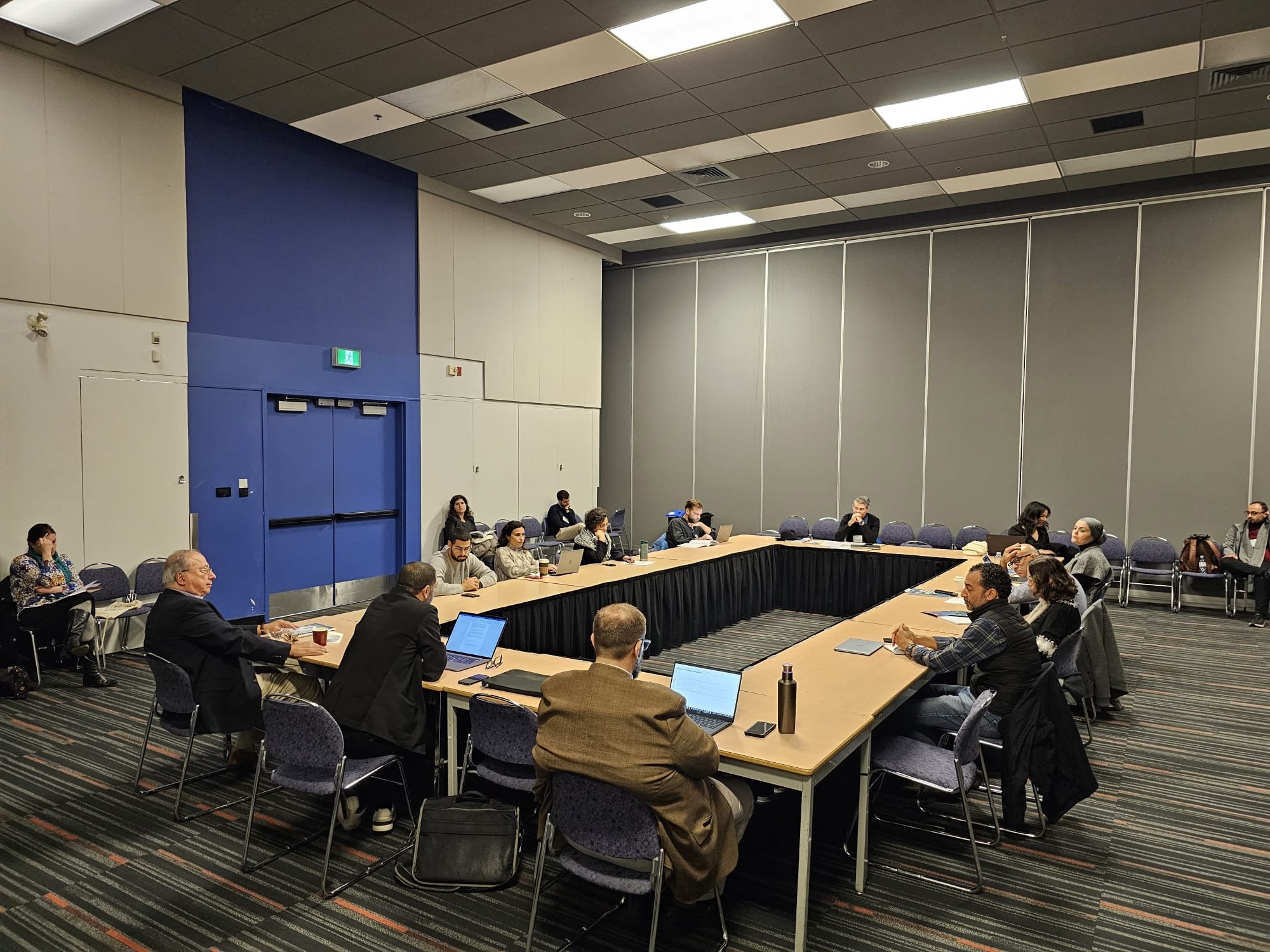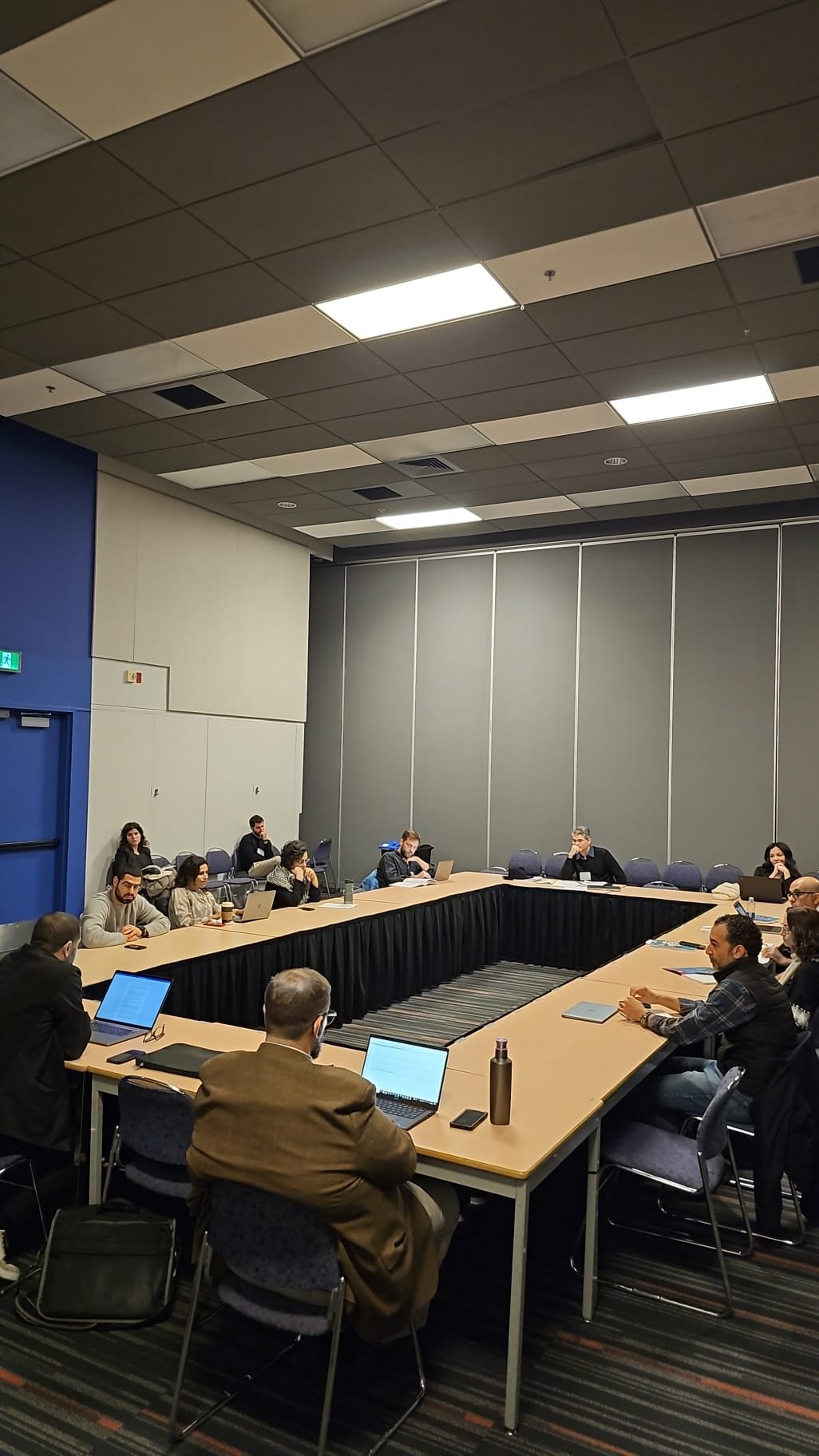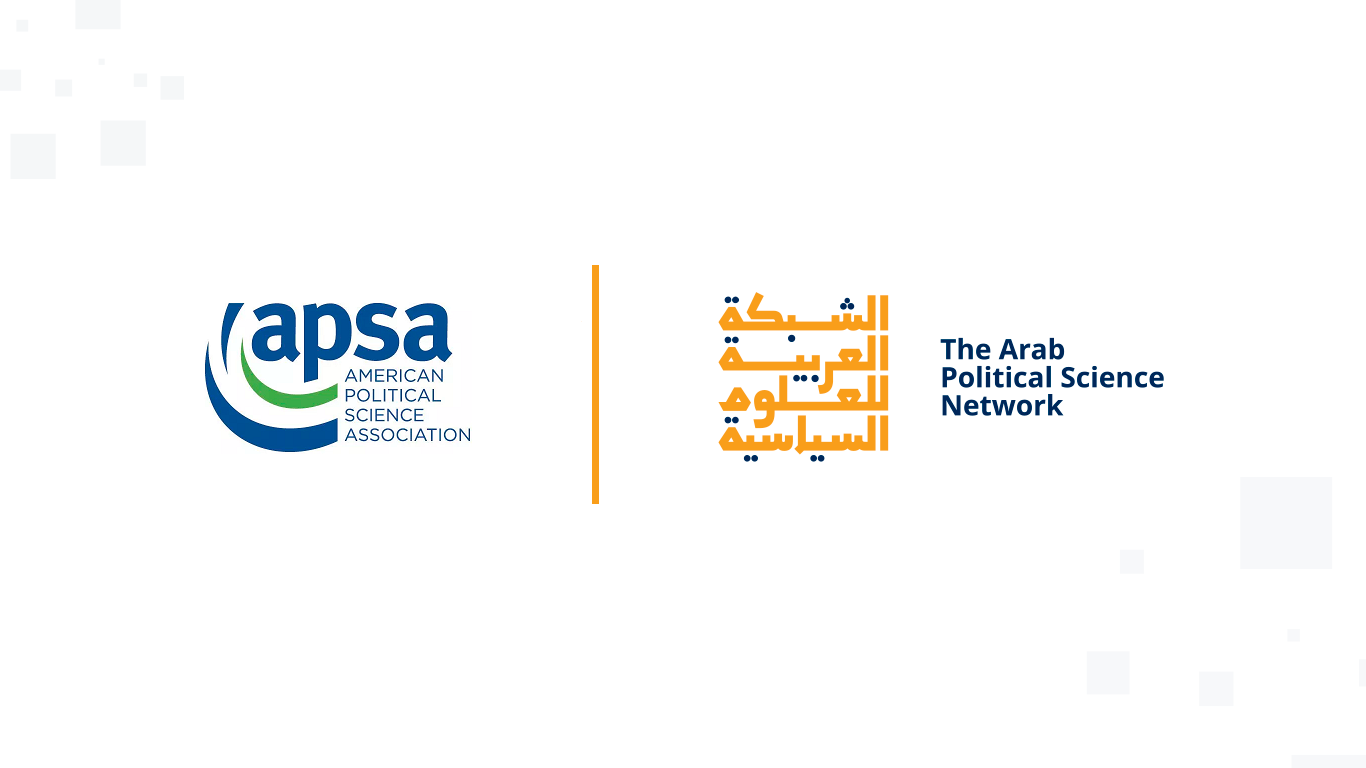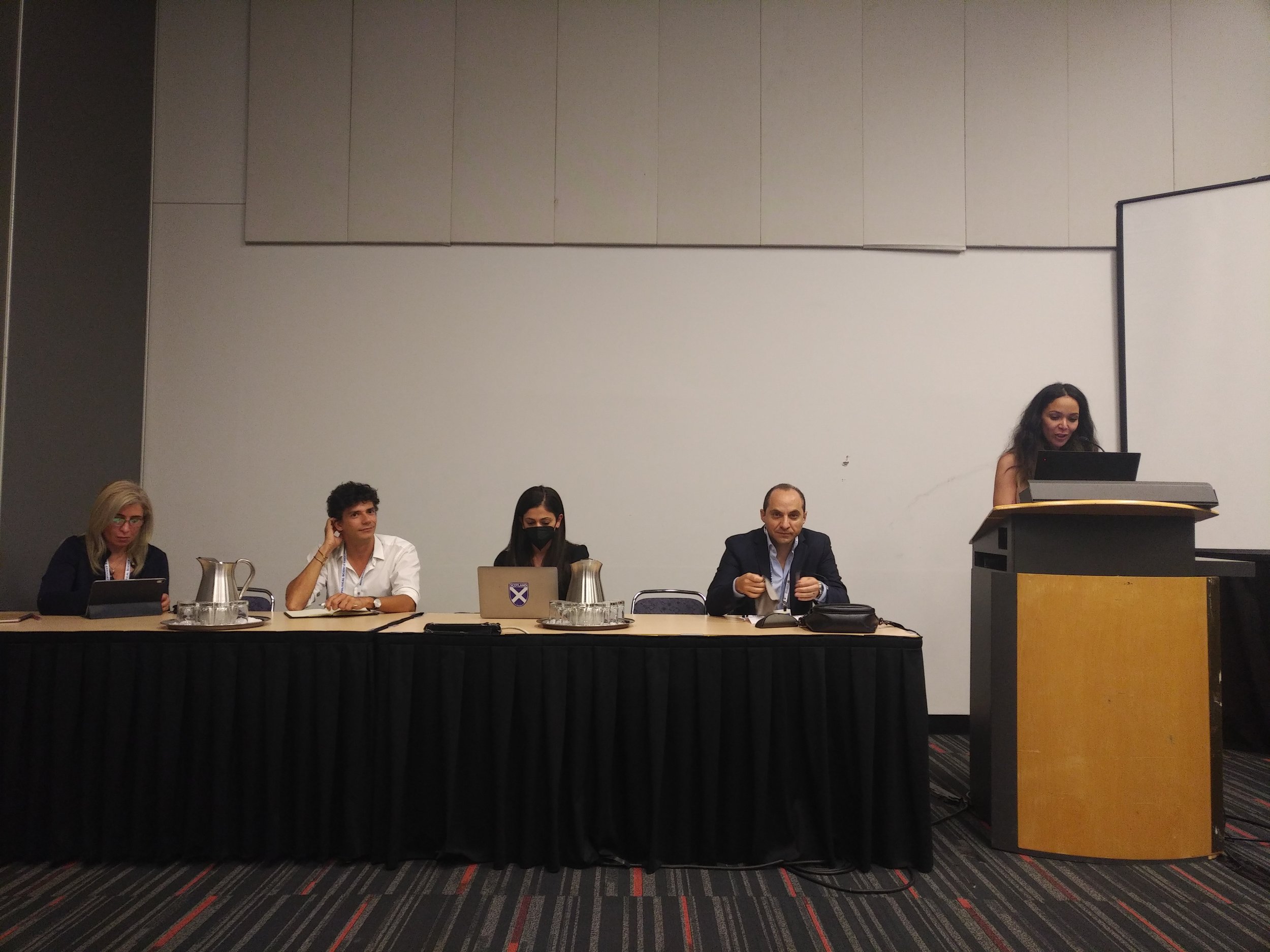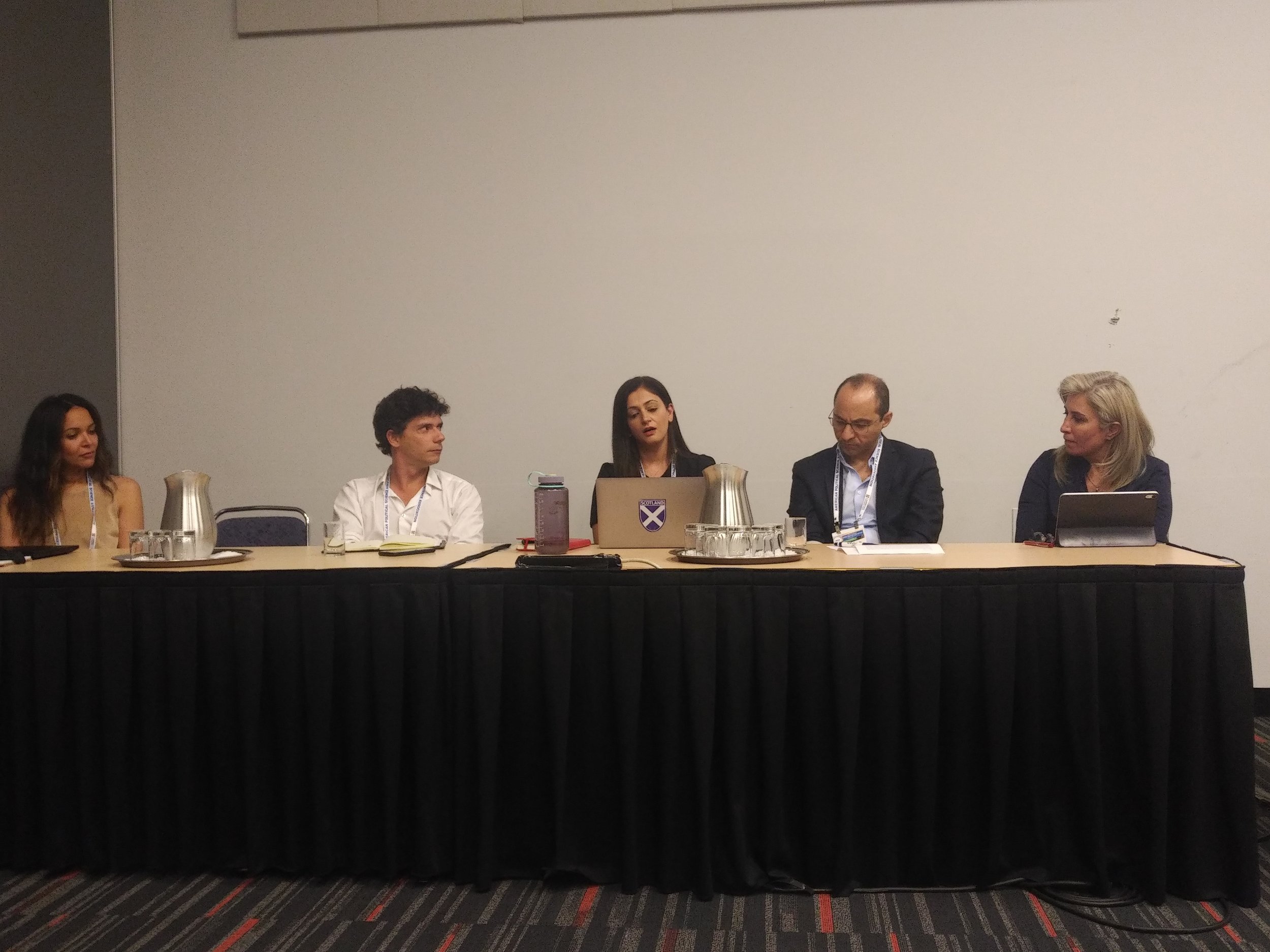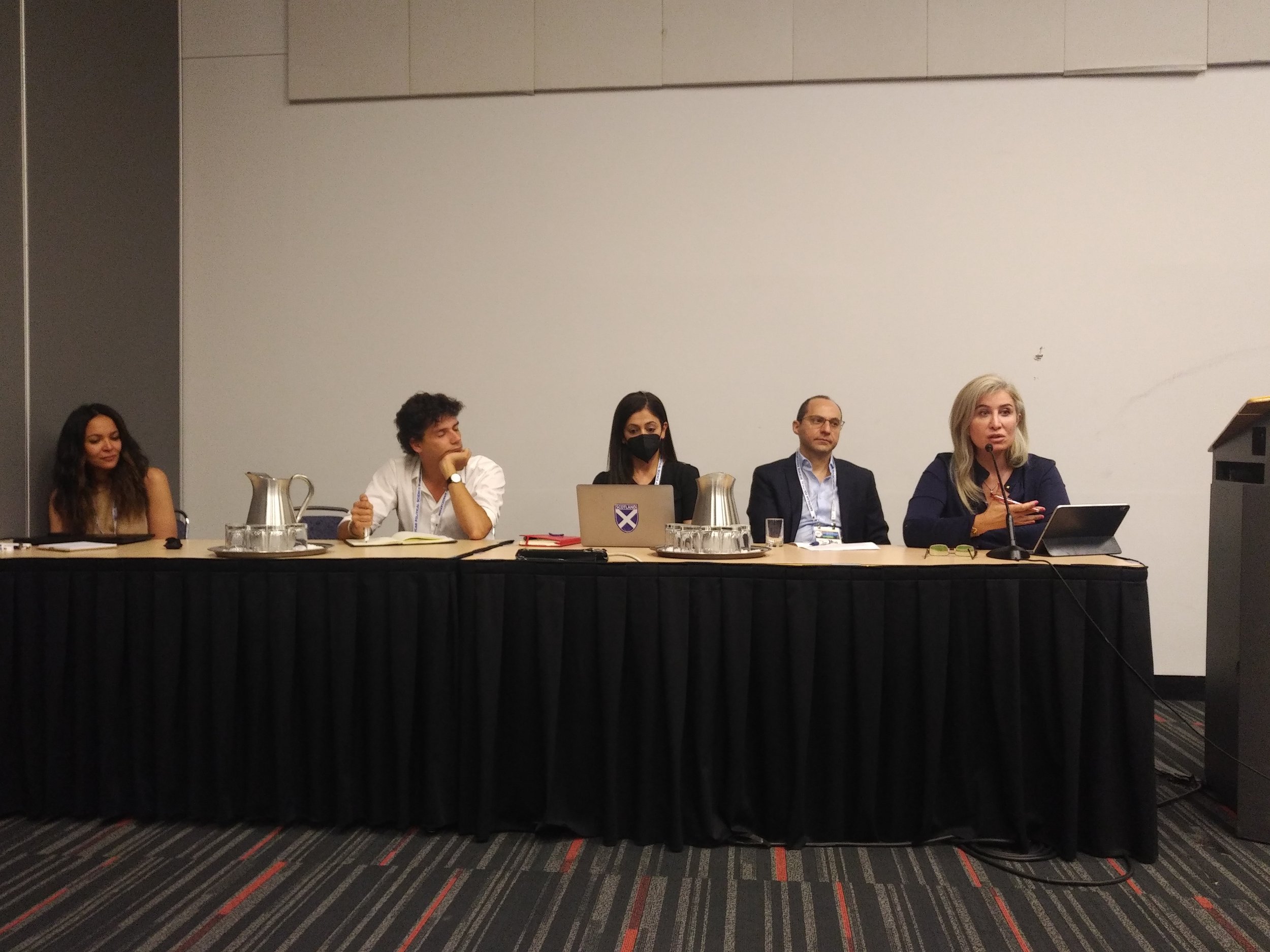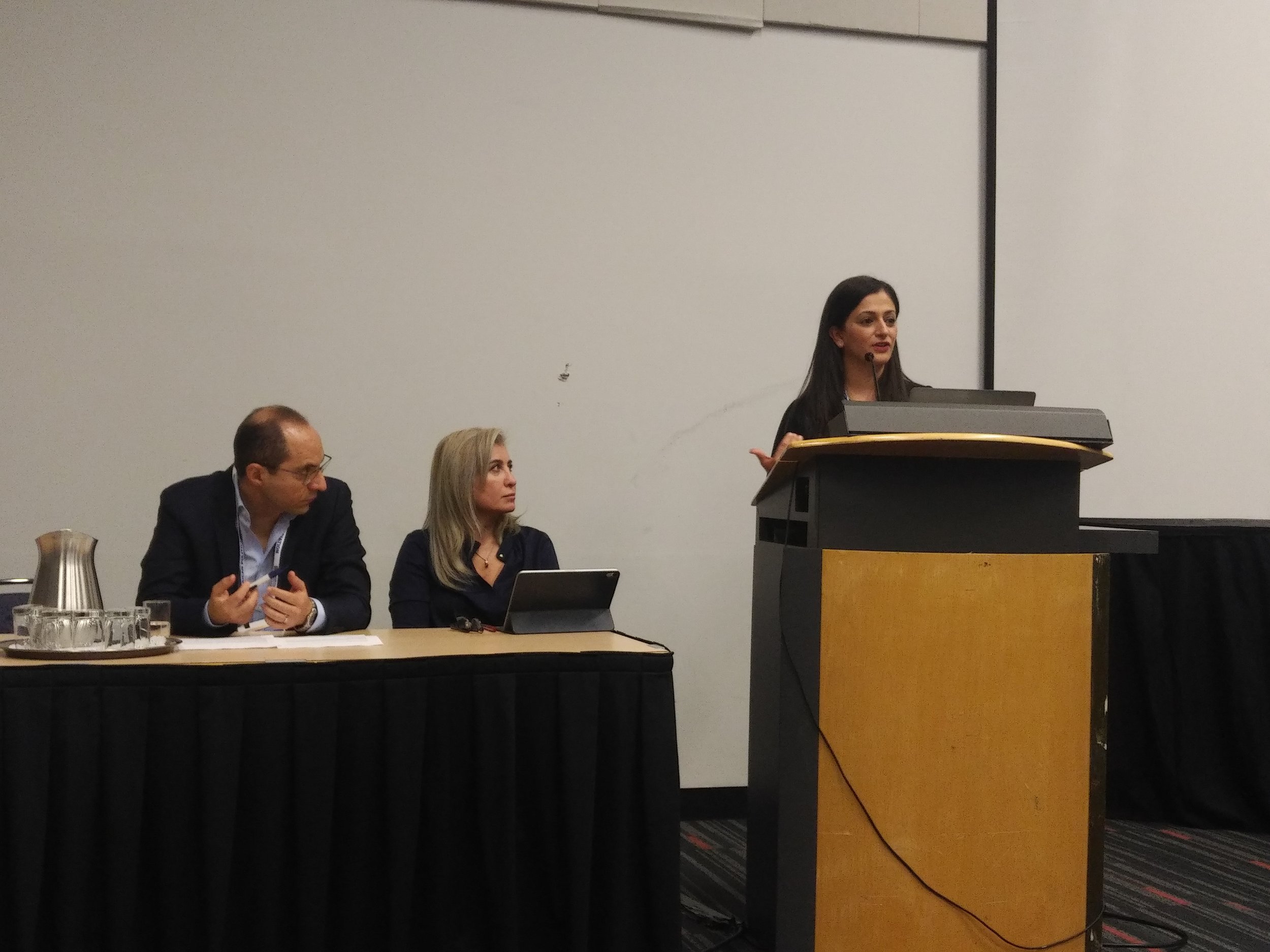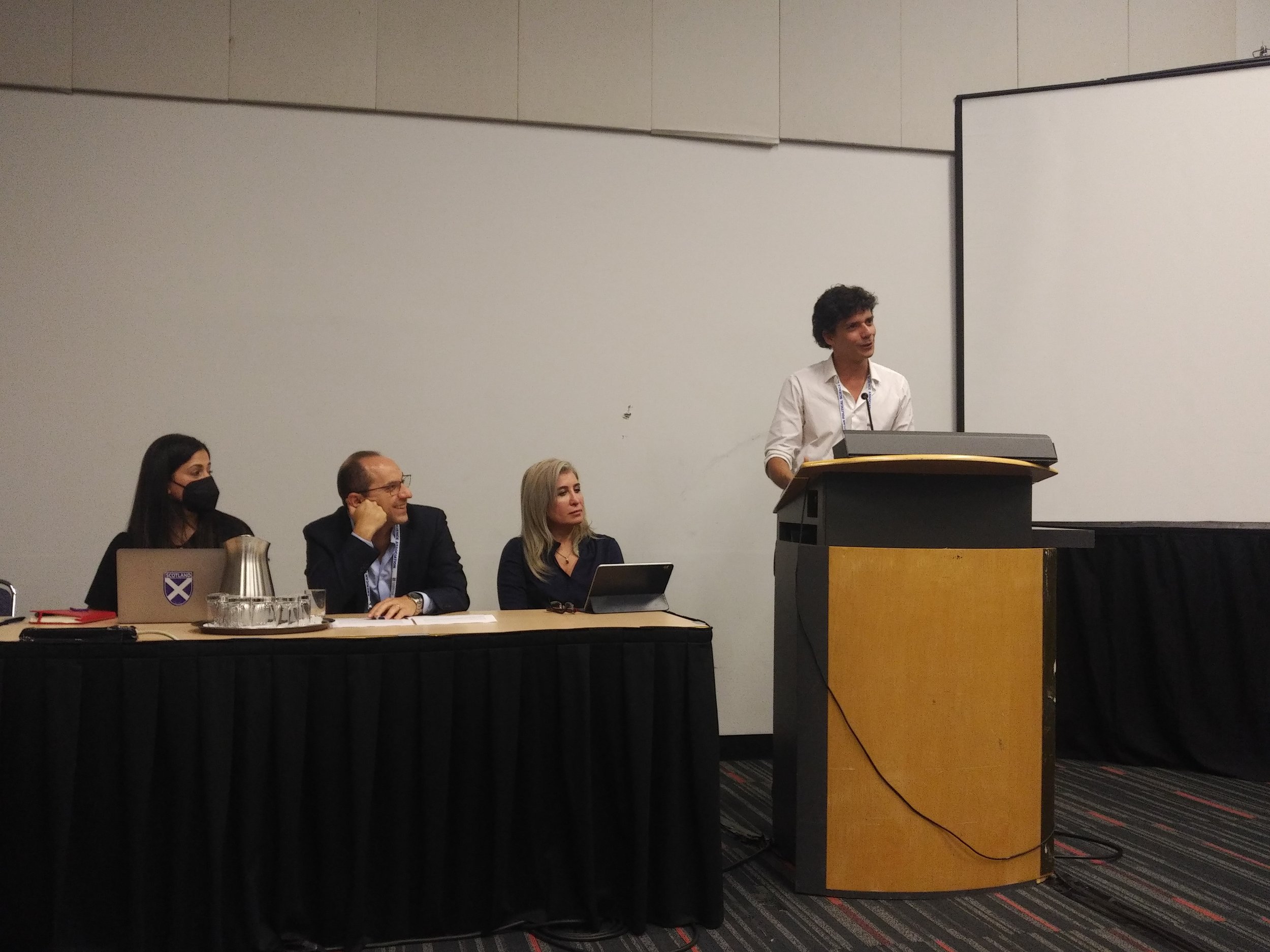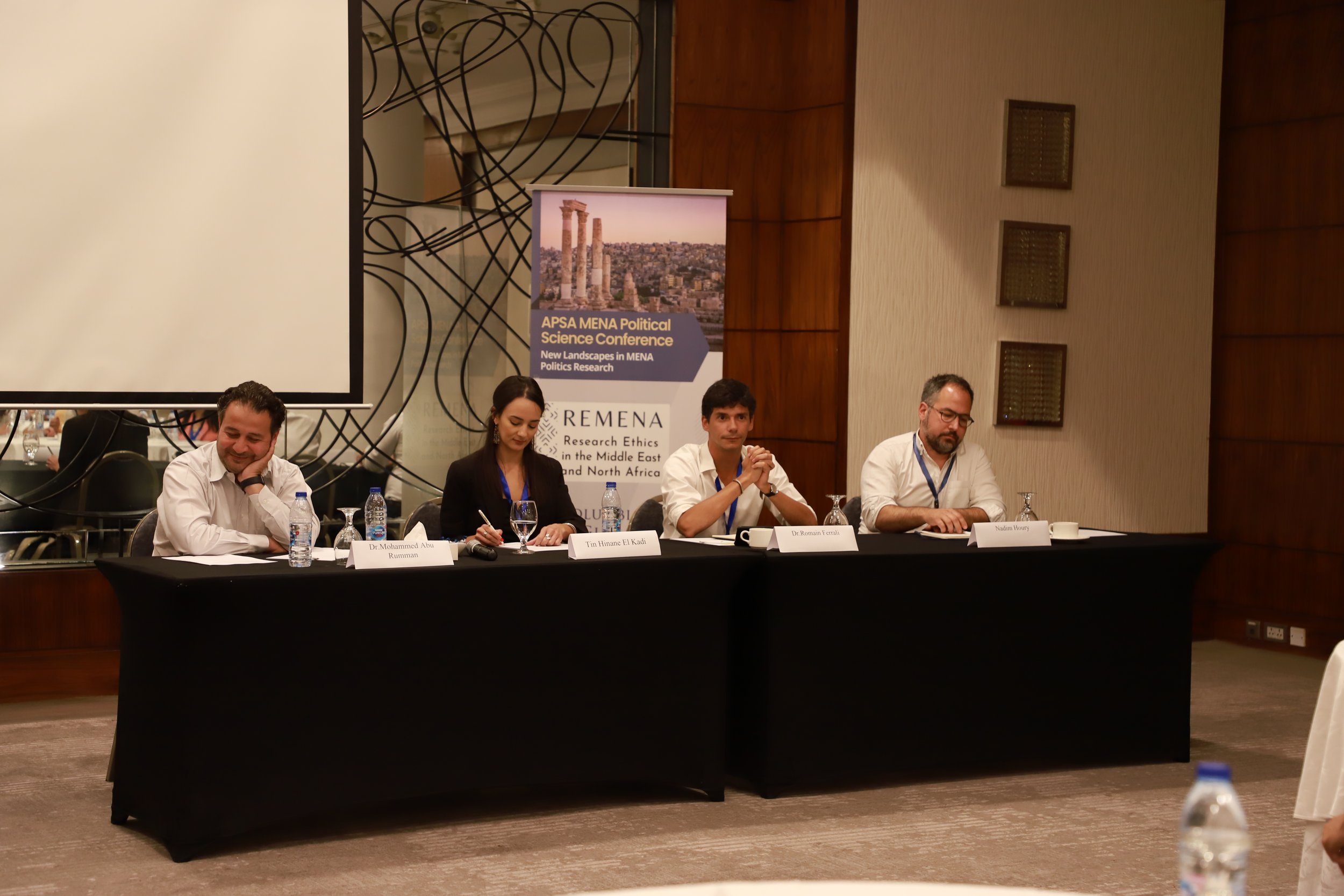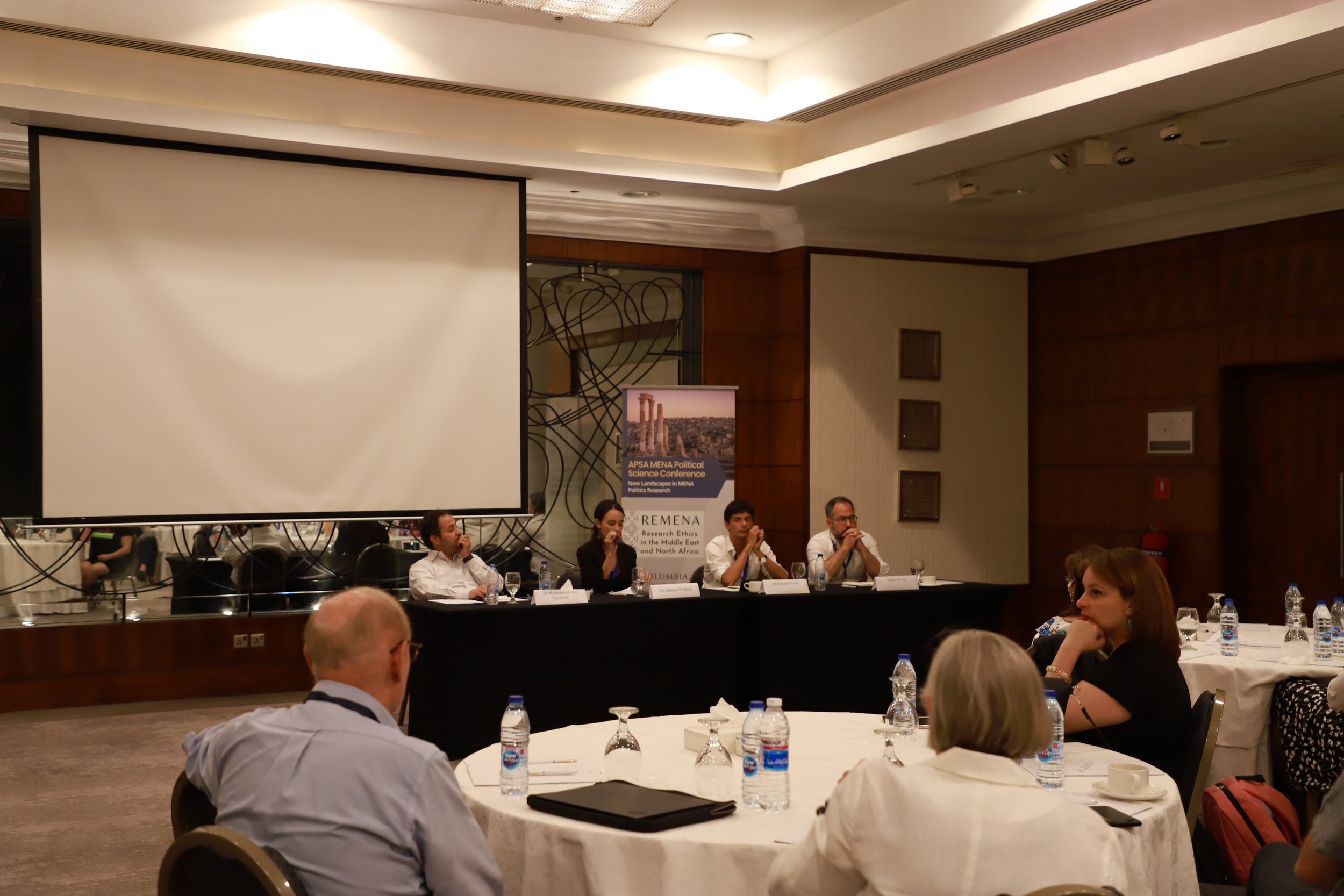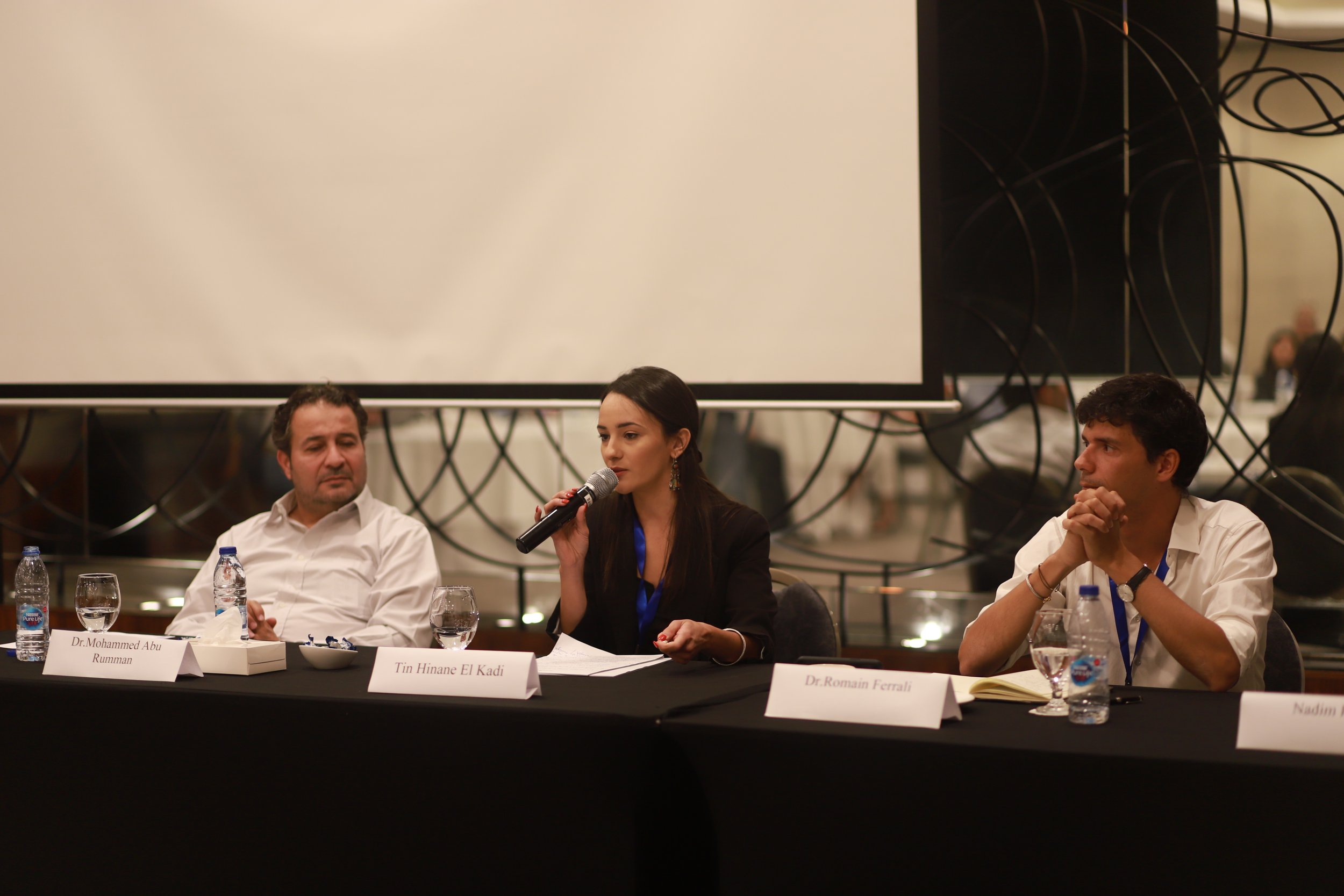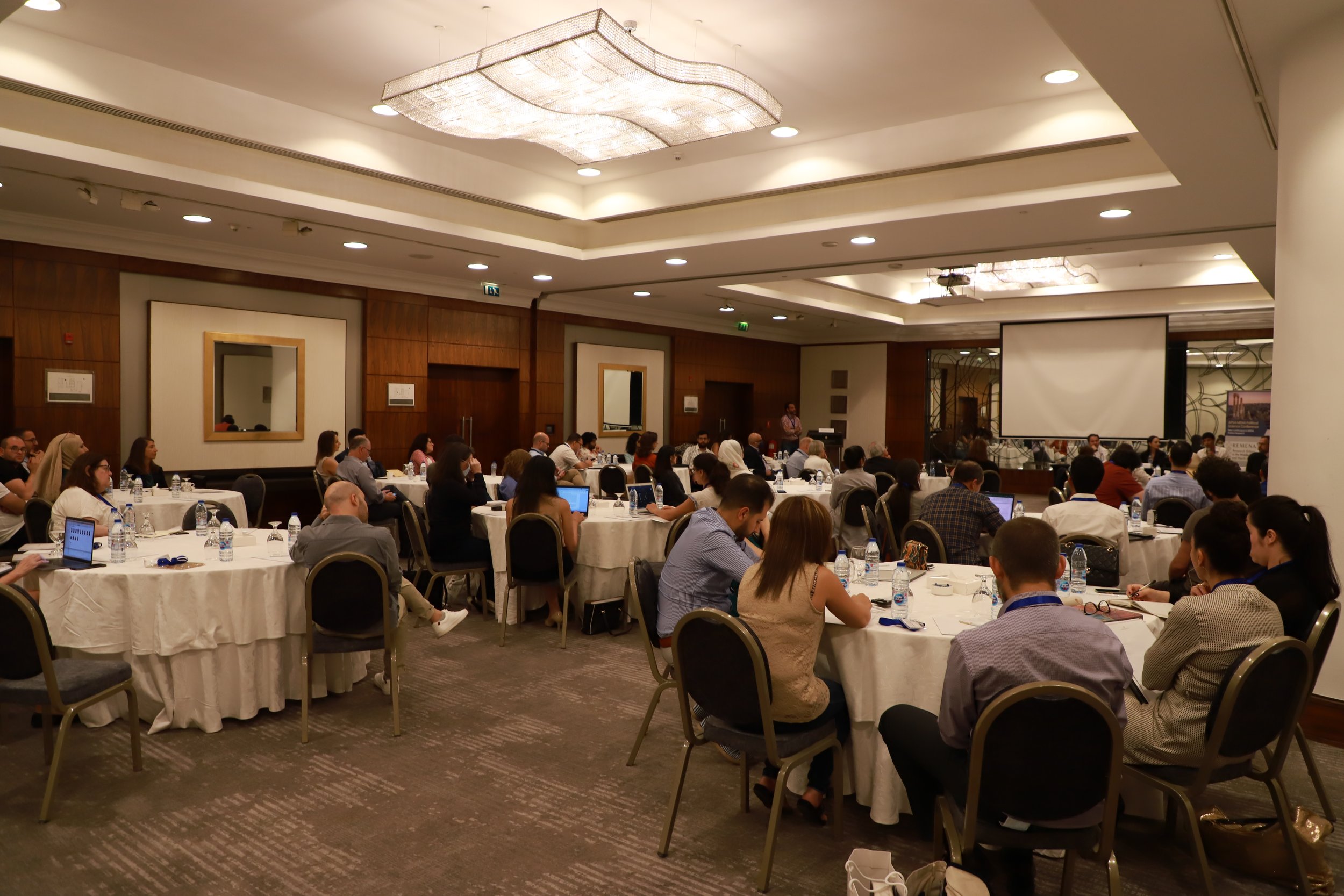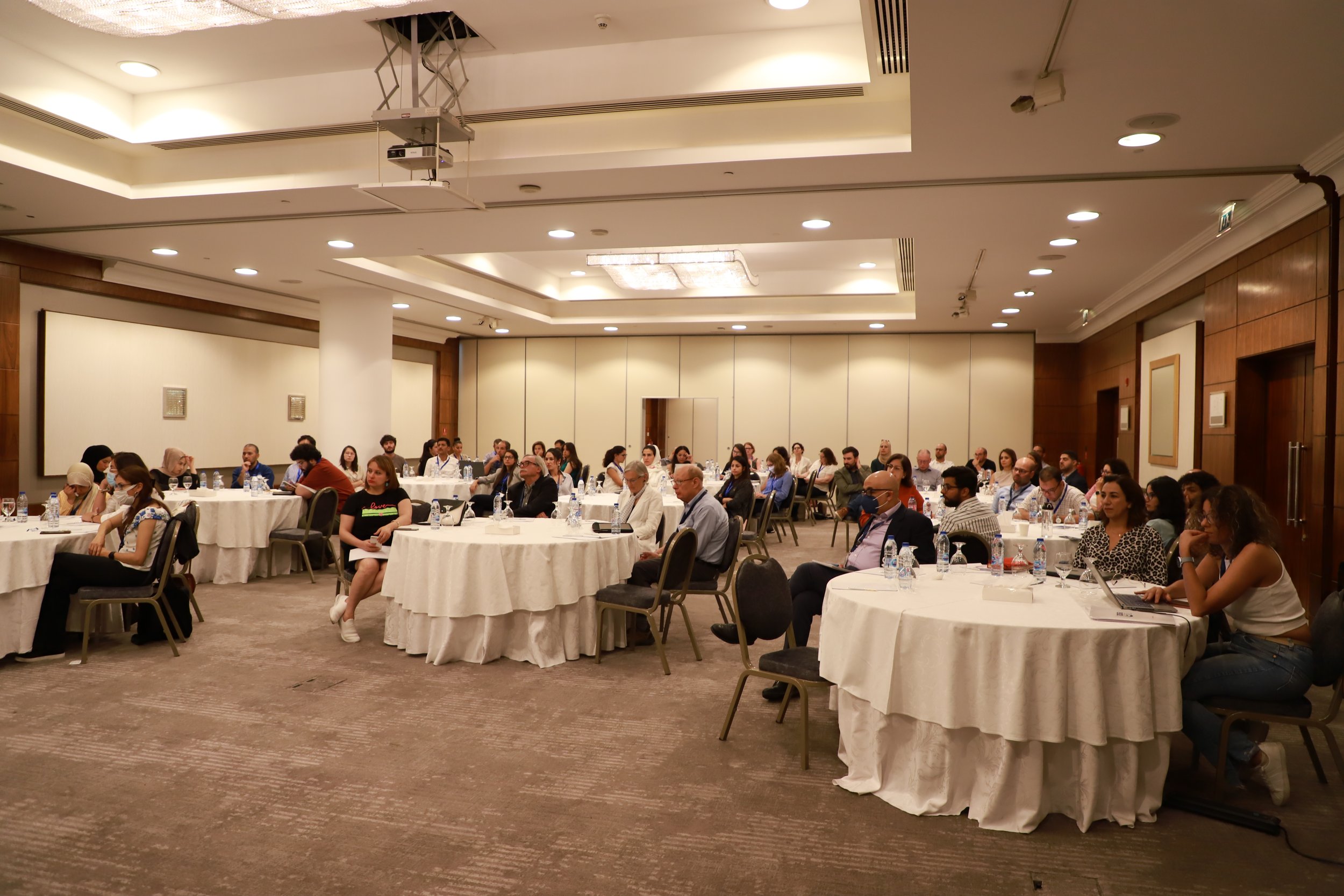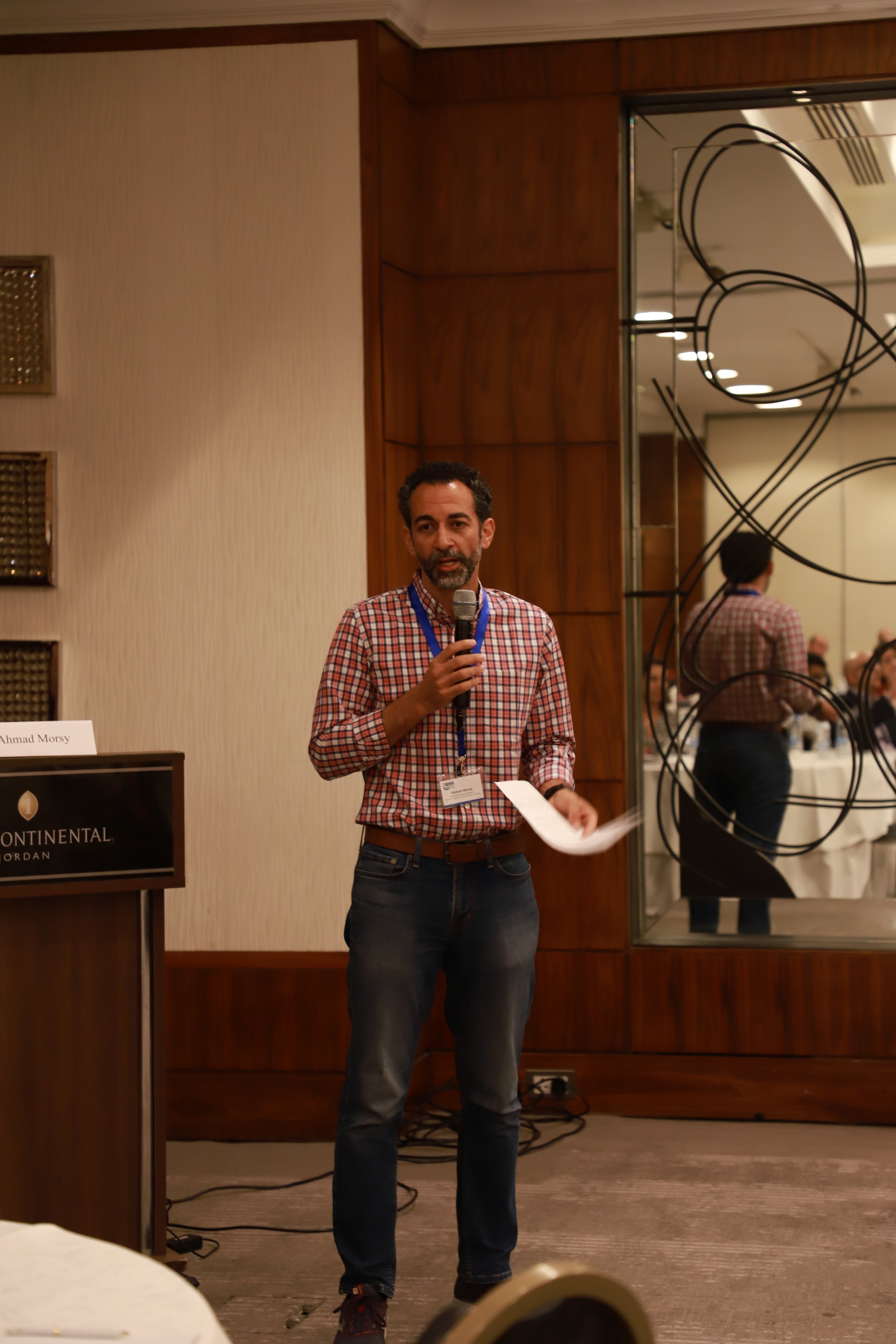
OUR EVENTS
Research Trends in Arab Politics
Roundtable sponsored by MESA Global Academy and the Arab Political Science Network
Saturday, November 4 | Montreal, Canada
This roundtable was a collaboration between the Arab Political Science Network (APSN) and the MESA Global Academy. It brought together four scholars specializing in political science and Middle East politics to discuss recent research and methodological trends, challenges pertaining to teaching and fieldwork in the Arab world as well as opportunities for collaboration between political science scholars in North America and MENA.
Participants:
Mimi Kirk, Organizer
Dr. Samer S. Shehata, Chair
Dr. Marwa Shalaby, Presenter
Dr. Omar Sirri, Presenter
Dr. Basileus Zeno, Presenter
Dr. Razan Ghazzawi, Presenter
Engaging Researchers and Enhancing Scholarship in the Arab World
The Arab Political Science Network (APSN) and the Arab Reform Initiative (ARI) organized a public meeting during the MESA Annual meeting in Montreal, Canada, titled “Engaging Researcher and Enhancing Scholarship in the Arab World.” The event discussed the opportunities and constraints for engaged scholarship, knowledge production and pathways for researchers to strengthen the influence of their scientific knowledge to contribute to better policy and research outcomes in Arab societies.
Attendees explored how scholarship about the Arab region can also be useful for people in the region. This included discussions on knowledge translation, participatory research methodologies, and public engagement. The participants also reflected on how research can be made relevant to non-academic communities, like activists and civil society actors, and to achieve policy influence.
The participants exchanged their experiences of engaged scholarship, the barriers encountered in trying to combat the extractive tendencies of academic research and publication, and how research can be leveraged to develop solutions to the most pressing civic, social, economic, and political problems the region faces today.
As part of the discussion, ARI and APSN presented their institutional experiences in the production and dissemination of knowledge; how scholars can get involved with both organizations and invited the attendees to reach out with ideas for possible collaborations.
Where did the Opposition go: New (and Old) Forms of Opposition to Entrenched Authoritarianism in the Middle East and North Africa
The Arab Political Science Network (APSN) organized a roundtable discussion about New (and Old) Forms of Opposition to Entrenched Authoritarianism in MENA, on the sidelines of the annual Meeting of the American Political Science Association (APSA).
The Ethics of Social Science Research and Teaching in MENA
In conjunction with the ISA conference in Ifrane, the Arab Political Science Network (APSN) organized a roundtable titled: The Ethics of Social Science Research and Teaching in MENA.
Engaging Arabic Scholarly Works: Challenges and Opportunities
The Arab Political Science Network (APSN), organized a roundtable discussion titled: Engaging Arabic Scholarly Works: Challenges and Opportunities. The session took place at the Middle East Studies Association Annual Meeting in Denver, Colorado, on December 2 from 9:30 to 10:30 am.
The internationalization of research and knowledge production in the last two decades is yet to be transformed into an interconnected network across different regions of the world. Despite recent strides in higher education in the Arab world, knowledge production continues to suffer from weak institutionalization and fragmentation. Research practices remain plagued by limited funding opportunities, methodological rigor, access to resources and relevance to ongoing local and global debates.
Most Arabic academic work, journal articles and books, are limited in their circulation, accessibility, and rigorous review and lack reliable metrics to measure their influence and impact. This creates challenges in engaging with these outputs and their authors and leads to their original contributions going unnoticed. It also disincentivizes Arabic- speaking scholars outside the Arab world, from publishing in Arabic.
The roundtable brought together three scholars working on the Arab world to reflect on and discuss the challenges and opportunities of engaging Arabic academic outputs. Each of the three participants had up to 10 minutes to share their own experiences and suggest potential areas for increasing accessibility, rigor and measuring impact.
National Identity(ies), Conflicts, and Minorities in Arab countries
The Arab Political Science Network (APSN) organized a roundtable to discuss the experiences of minority groups in nation-building and identity formation processes across the Middle East and North Africa region. Discussions around national identities and the place of minorities in nation building projects have been a longstanding controversial issue in the MENA region. On another level colonialism played a major role in identity formation in the MENA region by introducing itself as a protector of minorities. This has had a big impact on the discourse of minorities and nation building.
In this roundtable we ask: How does race and ethnicity affect processes of national identity formation in the region? How do different minority groups interpret these processes, negotiate their place in them, and push against some of their manifestations? The discussion will identify the role of politics, geography, and culture in shaping the place of minorities in the dialogue over national identity across the Arab countries. It will highlight the effects of political conflict, historical state-society dynamics, and geopolitical interests in the formation of national identities.
Panel Chair:
Nermin Allam
Assistant Professor of Politics at Rutgers University-Newark
Moderator:
Abdulwahab Kayyali
Independent Researcher and Consultant
Speakers:
Bessma Momani
Assistant Vice-President, Research and International, Office of Research
Full Professor, Department of Political Science, University of Waterloo
Romain Ferrali
Assistant Professor, Aix-Marseille School of Economics
Shamiran Mako
Assistant Professor of International Relations, Boston University
Research Agenda Stocktaking: Where do Regional Institutions Stand?
In conjunction with the American Political Science Association (APSA) Middle East and North Africa (MENA) conference titled New Landscapes in MENA Politics Research, the Arab Political Science Network (APSN) organized a panel featuring representatives from research and policy institutes in the Arab world. The panel examined the opportunities for and challenges to social science research from the perspective of regionally based institutes. This session complemented and contributed to the deliberations of the fellows, as well as other colleagues and researchers, participating in the conference.
The years following the Arab uprisings created renewed interest in research on issues from state-society dynamics and civil wars to regime/authoritarian resiliency and counterrevolutions. There has also been new research on mobilization and social media; the politics of gender and women; migration, displacement, and citizenship; and the intersections of politics, climate, and public health.
While considering these developments, as well as the often-inhospitable research climate across the region, the panelists (and attendees) are invited to reflect on:
- What kind / type of research agendas and ideas guide these research institutions? In what ways the COVID-19 pandemic, on-going civil strife across the region, increasingly authoritarian practices and the Ukraine war will impact research agendas and studies?
- What new priorities and realities should researchers and funders pay attention to?
- How can we utilize existing and advance new interdisciplinary approaches to help us understand and study some of these topics?
- How can we create and maintain supportive and collaborative networks of research, funding and mentoring that advances rigorous methodological and pedagogical training and publications?
Tin Hinane El Kadi is the co-founder and co-director of the Institute for Social Science Research on Algeria (ISSRA).
Romain Ferrali is an Assistant Professor of economics at the Aix-Marseille School of Economics.
Nadim Houry is the executive director of the Arab Reform Initiative (ARI).
Mohammad Abu Rumman is the founder and academic advisor of the Politics and Society Institute in Amman.
Situating the Lebanese Uprising: Revolution, Transformation, and (De)Mobilization
The volume aims to place the revolutionary experience of Lebanon within regional and global processes including the so-called Arab Spring, and makes an important contribution to the study of uprisings in neoliberal contexts. Dr. Mourad described the volume as “not just an encapsulation or a documentation of the uprising, but a volume that is itself part and parcel of the revolutionary moment and thinking around it in Lebanon.”
Submit an Event
Got an interesting event that you would like for us to share or collaborate on? Submit it here.
